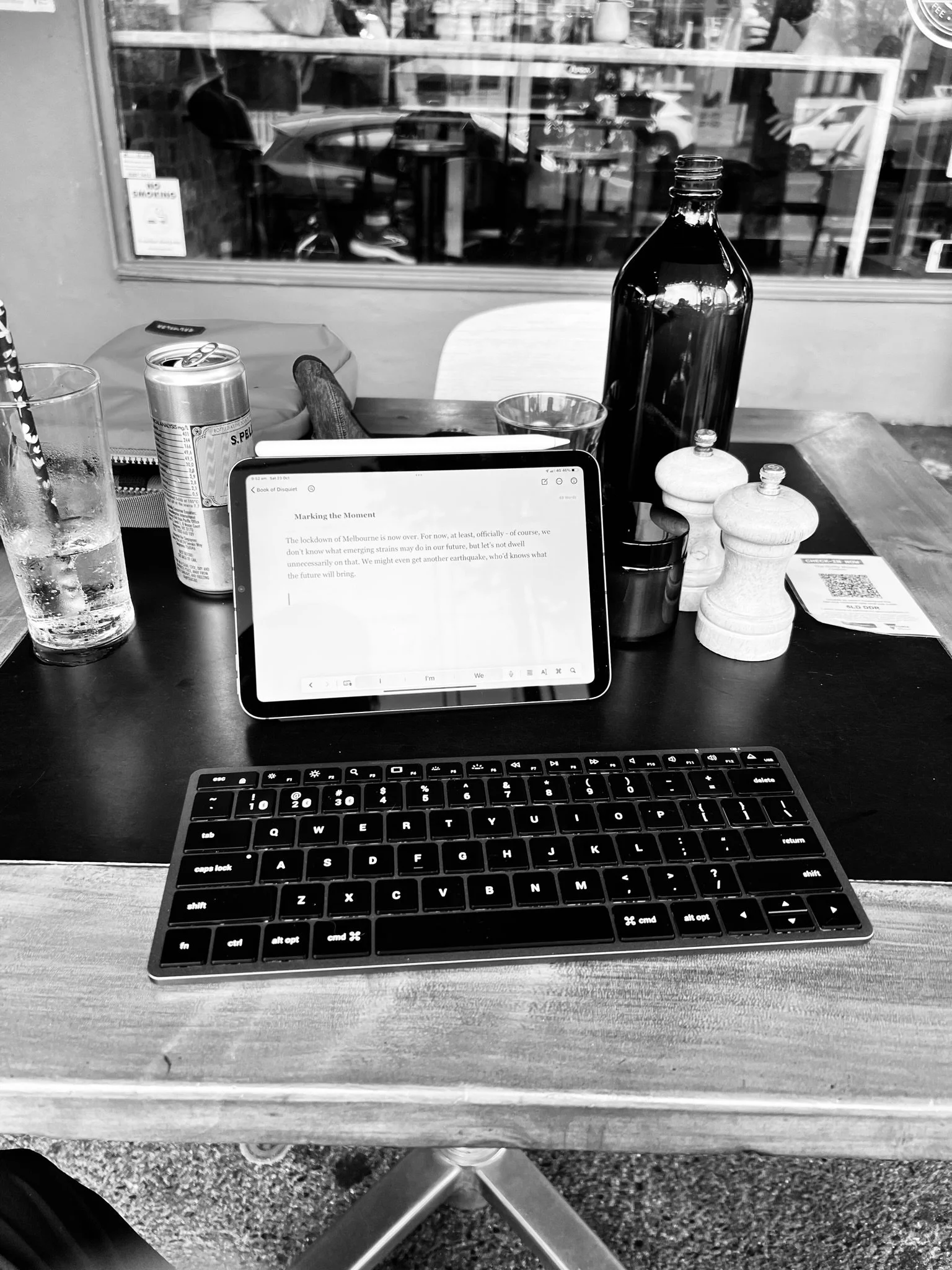The Ink Shot archive
From 7 May 2012 until 7 December 2021 The Ink Shot was the blog of Marcus Baumgart, an itinerant café writer, designer of buildings, animal-lover and day-by-day battling creative. This blog celebrates the practice of writing in cafés, writing fiction and non-fiction and being creative in general.
Marcus struggles to motivate without the happy white noise of lively conversation and hissing espresso machines.
At the Carwash
I am at the carwash.
I am getting my new car polished. It is not a great day for this as it looks like it is going to rain, but you never do know. Nevertheless, the vehicle needed the dust removed. It also needed some love within the interior, at least a wipe down to remove fingerprints.
A polished car is a lovely thing to behold. I like cars, they are self-contained worlds, interesting in shape and form and also colour. A well chosen one satisfies this description, in any case.
My car is blue. It is a BMW. I like my car.
It is not too big, unlike my older BMW, which was black. Black is a poor colour for cars. It looks great when the vehicle is newly polished, but it looks dusty ten minutes later.
This is my second blue BMW. The first was a sedan, a 2015 model 3 Series. I now have a much smaller hatchback. In fact, it is a 1 Series hatch, a 128ti. I like the design of BMWs.
I contemplated buying an electric car but I could not find one that suited my needs and my budget. My next vehicle may be electric. My 1 Series has a petrol-powered internal combustion engine that is small and powerful. This is a perfected, polluting technology.
My car is a delight to drive, and I can take it out into the country without worrying about the slow charging needed to get home again.
In two weeks I need to visit Warragul to pick up my new puppy, who will be named Bunty. I am impatient for this. A day trip and a puppy arrival in the same event - what fun.
It is now raining steadily. My car wash outing has come to an end.
Marking the Moment
It is Saturday morning, I am in a café, and the lockdown of Melbourne is at an end.
For now, at least, officially - of course, we don’t know what emerging strains may do in our future, but let’s not dwell unnecessarily on that. For all I know we might even get another earthquake, who knows what the future will bring.
I am not so fragile in my sense of personal autonomy and wellbeing that the lockdowns have been experienced as an affront to my personal or spiritual freedom; however, it is nevertheless good to be out and about. The easing of restrictions is visceral in its impact and very welcome.
Even so, I had the opportunity to dine out downstairs from my apartment last night, but was strangely hesitant. I didn’t go out. This was more mild agoraphobic impulse than any caution about the pandemic. It will take a few days and/or weeks to shake off the hermit-like, homebound habits of the last two years, I suspect.
This morning I have ventured out, wearing a T-shirt with the caption -“DOGS - Because people suck” to my favourite cafe, the Guilty Moose in Albert Park here in Melbourne. The Ink Shot was founded on the principle of writing in cafes, and there has been a distinct deficit of this in the last two years. I intend to make up for this beginning today.
Some Praise for the Mundane
Office life can be mundane, but there is nothing wrong with mundanity.
Having said that, there is no Rosetta Stone for human relations. If I go into the office, and I do not understand what one of my employees is doing or why, the channels of interpretation are constrained and limited, even if underpinned by that illusory quality of ‘common sense’.
This is usually adequate for us all to get by, but I am sure that there are motives and intents that are entirely untranslatable - alien, indecipherable - from one mind to the next. The office provides a mundane (see the Latin ‘mundi’, meaning world; hence the mundane is ‘of the world’) framework within which such delicately balanced relations are stepped out.
I think this is why nothing ever surprises me, in work or in life.
Certainly, no co-worker or employee can surprise me with their actions or their decisions. Another individual’s motivation and intention is far too opaquely formed to allow for predictability, so with little or no expectation of such a thing, why should I be surprised?
And yet, somehow, we manage to work and live alongside each other day by day.
This is more evidence of the endless, messy compromises that form the fabric of our lives. They are ragged, but enough.




